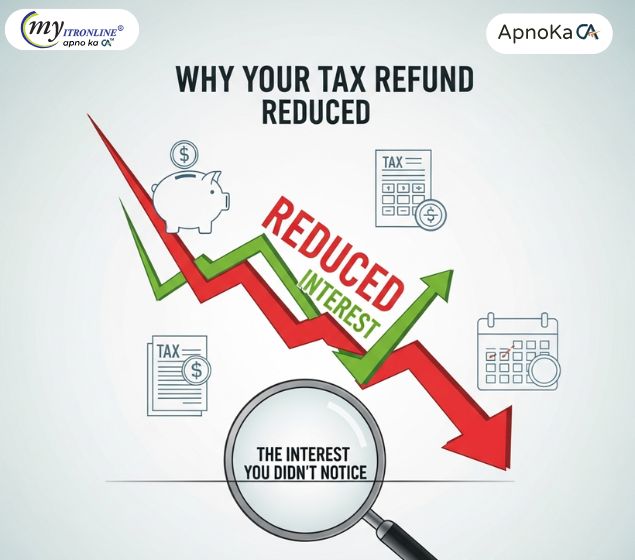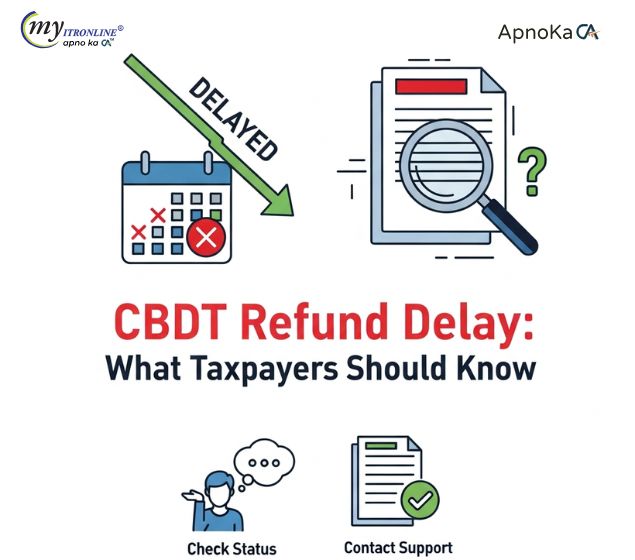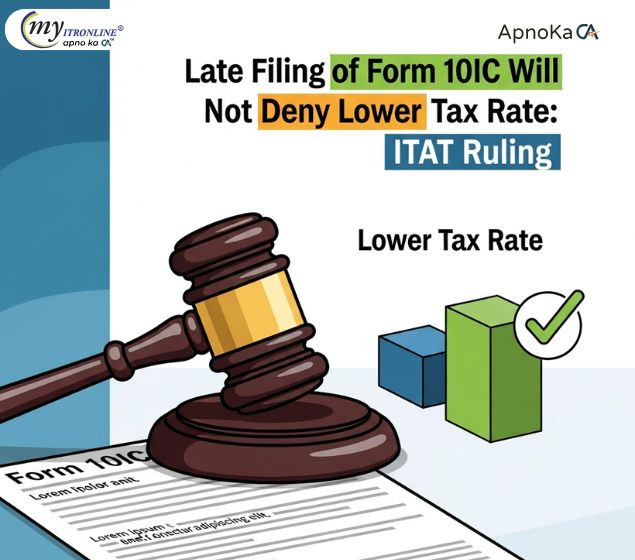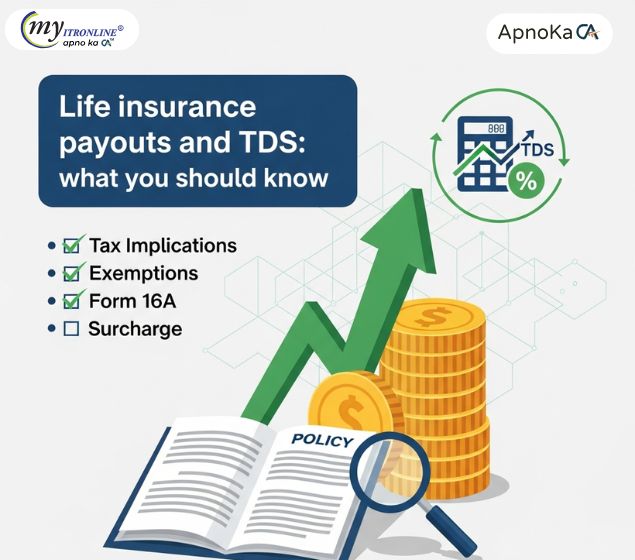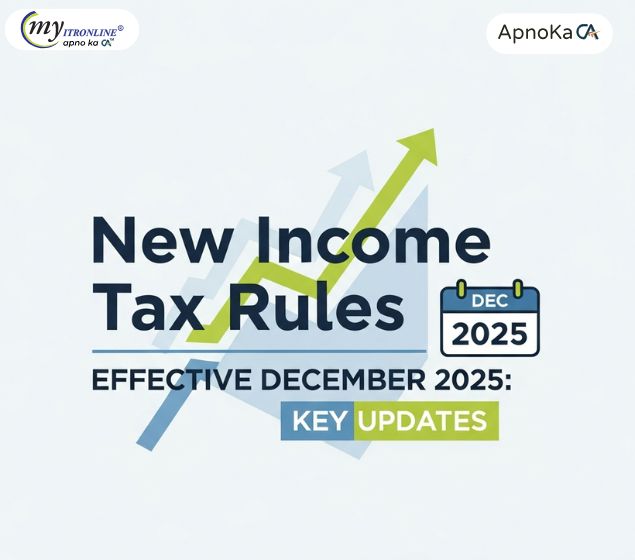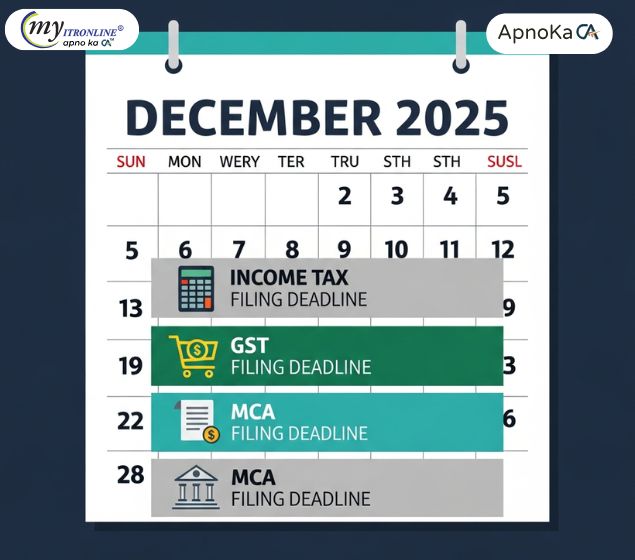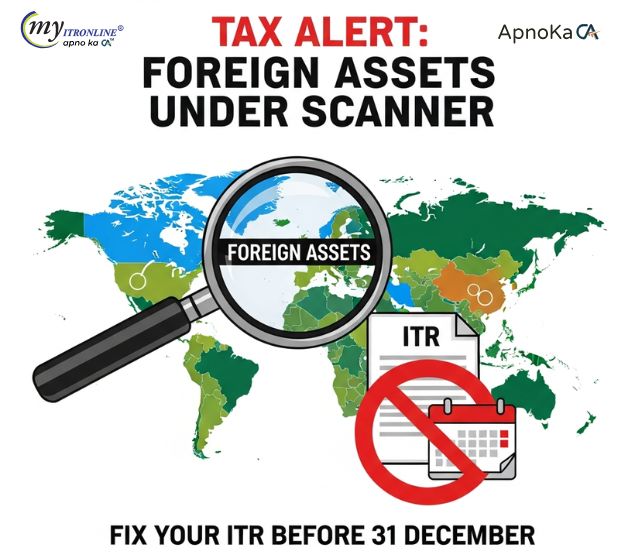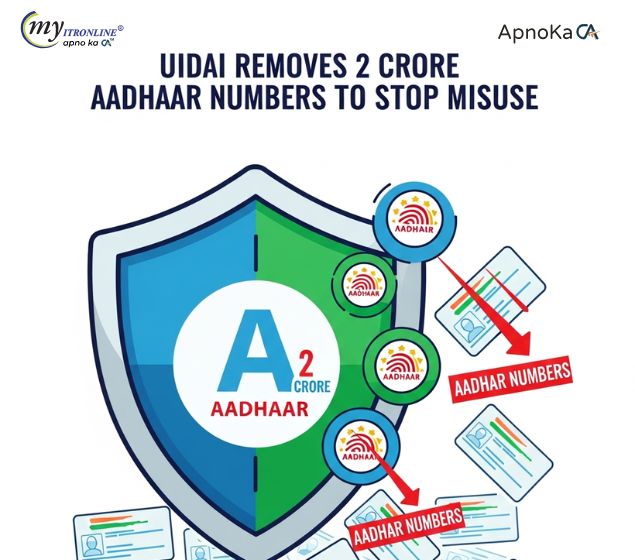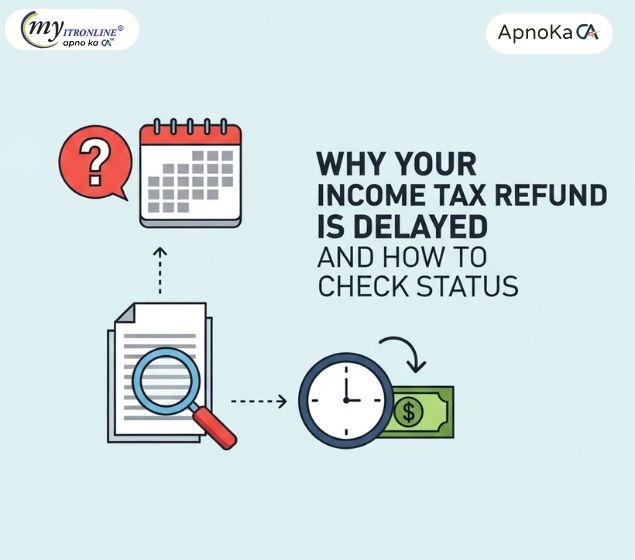ITR Update: Why 200% Fine and Jail Time Are Real Risks Now
This blog post warns taxpayers about the updated ITR regulations, highlighting the drastic consequences of under-reporting or misreporting income, including a 200% penalty and potential criminal prosecution. It explains why the Income Tax Department is increasing scrutiny through data analytics and detailed ITR forms, and provides essential steps for taxpayers to ensure compliance and avoid severe financial and legal repercussions.

200% Fine & Prosecution: What New ITR Rules Mean for You
The time for relaxed tax submissions has officially passed. The Indian Income Tax Department, utilizing advanced data analytics and a dedication to stricter adherence, has significantly increased scrutiny on Income Tax Return (ITR) submissions. Recent changes to ITR forms (such as ITR-1 and ITR-4 for AY 2025-26, FY 2024-25) require detailed information regarding deductions and income sources, making it more challenging to manipulate tax declarations.
The message is unmistakable: precision is essential, and any venture to under-report or misreport income could now result in a massive 200% fine and potentially trigger criminal charges. This is not merely a caution; it is a transformative change in India’s tax enforcement landscape.
The Disturbing Reality: Fines and Legal Action
The key tool in the Income Tax Department’s strategy against incorrect submissions is Section 270A of the Income Tax Act, 1961. This section specifically addresses penalties for "under-reporting" and "misreporting" income.
- Under-reporting of Income: This happens when the income evaluated by tax authorities exceeds what you declared in your ITR, or if you omit to file a return when your income surpasses the basic exemption limit. For this under-reporting, the penalty stands at 50% of the tax owed on the under-reported income.
- Misreporting of Income: This is considered a more serious violation, indicating a conscious effort to hide or distort information. Examples include:
- Falsifying or hiding facts.
- Neglecting to document investments in financial records.
- Claiming expenses that lack proof.
- Entering false information into financial records.
- Failing to log any income affecting total earnings.
- Omitting to disclose any international transaction.
In addition to financial penalties, serious instances of tax evasion, particularly those involving intentional attempts to evade tax, can result in criminal prosecution under Sections 276C or 276CC of the Income Tax Act. This could lead to imprisonment along with a fine. The stakes have escalated dramatically.
Reasons for Increased Scrutiny
The Income Tax Department’s heightened emphasis on compliance is influenced by several factors:
- Data Analytics & AIS/TIS Integration: The Annual Information Statement (AIS) and Taxpayer Information Summary (TIS) are effective tools. They compile a broad array of financial transactions, such as salary, interest income, dividend income, mutual fund activities, property transactions, and more. The department can now efficiently cross-check the information you provide in your ITR with data from various sources (banks, employers, financial institutions). Any discrepancies are promptly identified.
- Detailed ITR Forms: The revised ITR forms (for AY 2025-26, FY 2024-25) now demand significantly more detailed disclosures regarding deductions. For instance:
- Section 80C (LIC, PPF, ELSS): Requires the submission of policy numbers or document identifiers.
- Section 80D (Health Insurance): Necessitates the insurer's name along with the policy number.
- Deductions for Education/Home Loans (80E, 80EE, 80EEA): Calls for lender names, loan account numbers, and dates of sanction.
- Electric Vehicle Deduction (80EEB): Obligates vehicle registration numbers.
- Revenue Enhancement & Responsibility: The government is focused on expanding the tax base and ensuring everyone contributes fairly. Stricter penalties and legal actions serve as deterrents intended to enforce responsibility and curb revenue losses from fraudulent claims.
How to Steer Clear of Penalties and Legal Action
The directive is straightforward: be truthful, be precise, and be meticulous.
- Cross-Check Data with AIS/TIS: Before submitting your ITR, thoroughly review your AIS and TIS. Confirm that all reported earnings and transactions align with your records. Any inconsistencies must be addressed promptly.
- Keep Proper Records: For each deduction and source of income, make sure you possess proper, verifiable documentation. This includes receipts, policy documents, loan statements, bank records, and any other relevant proof.
- Learn the New ITR Form Requirements: Get acquainted with the revised ITR forms for the current assessment year. Pay careful attention to the new, detailed disclosure obligations for various deductions and income categories.
- Declare All Income: Ensure that no source of income is overlooked, regardless of its size. Interest from savings accounts, fixed deposits, capital gains from investments, rental income, or any other source must be reported.
- Obtain Professional Assistance: If your financial situation is complicated, or if you're uncertain about any tax filing aspect, consult with a qualified tax professional, such as a Chartered Accountant (CA). Their knowledge can help you avoid expensive errors.
- Submit on Time: Prompt filing (or submitting an updated return if necessary) helps prevent late fees and minimizes the likelihood of scrutiny, although accuracy remains paramount.
Conclusion: Emphasize Compliance for Peace of Mind
The updated ITR regulations, with their severe penalties and potential for prosecution, reflect a significant shift towards a compliance-oriented tax system in India. While these changes may seem daunting, they ultimately strive to create a more transparent and equitable tax framework.
For taxpayers, this signifies that ITR filing must be taken seriously. Prioritizing accurate reporting, maintaining impeccable records, and seeking professional help when needed are no longer optional; they are crucial to avoiding major financial consequences and legal issues. Don’t let a slight mistake or intentional misreporting escalate into an expensive debacle. File your taxes accurately and enjoy a peaceful night’s sleep.
File your ITR right, avoid 200% penalties!
For accurate & timely filing, trust Myitronline. Call 9971055886
FAQs on Updated ITR Regulations, Fines & Legal Actions
Q1: What drives the implementation of these more stringent ITR regulations?
A1: The main drivers include the Income Tax Department's improved data analytics capabilities (through AIS/TIS), the rollout of more detailed ITR forms which require extensive disclosures, and a strong emphasis on enhanced tax compliance and revenue collection.
Q2: How do "under-reporting" and "misreporting" income differ?
A2: Under-reporting usually refers to the unintentional omission of income that was actually earned due to errors (penalty: 50% of tax on under-reported income). In contrast, misreporting suggests a willful effort to hide or distort information, often through falsified entries or unsupported claims (penalty: 200% of tax on misreported income), making it a more severe violation.
Q3: Can a minor error result in a 200% penalty?
A3: The 200% penalty is generally applied to cases of "misreporting," indicating a conscious act. Simple typing errors or honest omissions, if adequately justified, might incur the 50% penalty for under-reporting or could be overlooked with a valid explanation. However, due to increased oversight, even careless errors may lead to penalties.
Q4: What are the implications of prosecution under the Income Tax Act?
A4: Prosecution under clauses such as 276C or 276CC can result in imprisonment for a duration ranging from 3 months to 7 years, depending on the amount of tax evaded, alongside a monetary fine. This is pursued as a criminal matter.
Q5: What steps can I take to ensure my ITR adheres to the new regulations?
A5: Align all your financial information with AIS/TIS, collect and validate all documentation supporting your income and deductions, gain a thorough understanding of the new ITR form requirements, and consider seeking advice from a tax professional for precise filing, especially if you possess intricate financial transactions.
FILING YOUR INCOME TAX RETURN F.Y 2024-25 (A.Y. 2025-2026) WITH MYITRONLINE
The income tax filing deadline is right around the corner. If you haven’t filed yet, do it today with Myitronline! Avoid last minute rush and file your tax return today on MYITRONLINE in Just 5 mins.(www.myitronline.com)
If you are looking for eCA assistance to file your income tax return/ GST, you can opt for MYITRONLINE eCA assisted plan starting
Upload Salary Individual Form-16
If you have any questions with filing your tax return, please reply to this mail. info@myitronline.com OR call 9971055886,8130309886.
Note-All the aforementioned information in the article is taken from authentic resources and has been published after moderation. Any change in the information other than fact must be believed as a human error. For queries mail us at marketing@myitronline.com
Krishna Gopal Varshney
An editor at apnokacaKrishna Gopal Varshney, Founder & CEO of Myitronline Global Services Private Limited at Delhi. A dedicated and tireless Expert Service Provider for the clients seeking tax filing assistance and all other essential requirements associated with Business/Professional establishment. Connect to us and let us give the Best Support to make you a Success. Visit our website for latest Business News and IT Updates.
Leave a reply
Your email address will not be published. Required fields are marked *Share this article
Krishna Gopal Varshney, Founder & CEO of Myitronline Global Services Private Limited at Delhi. A dedicated and tireless Expert Service Provider for the clients seeking tax filing assistance and all other essential requirements associated with Business/Professional establishment. Connect to us and let us give the Best Support to make you a Success. Visit our website for latest Business News and IT Updates.
View articles









